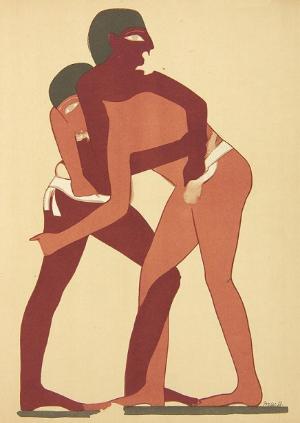Abstraction to the Notional: David Summers' Principle of Art History
Monday 8 June 2015, 5.30PM
Speaker(s): Professor Whitney Davis
 This lecture addresses David Summers' Aristotelian approach to the history of world art from prehistory to the present day, in particular his theory that human making, or 'facture', is driven onward both technically and perceptually by an irreversible process of 'abstraction to the notional', in which increasingly 'generalized dimensional relations' are apprehended, refined, and replicated in a series of man-made things.
This lecture addresses David Summers' Aristotelian approach to the history of world art from prehistory to the present day, in particular his theory that human making, or 'facture', is driven onward both technically and perceptually by an irreversible process of 'abstraction to the notional', in which increasingly 'generalized dimensional relations' are apprehended, refined, and replicated in a series of man-made things.
This approach involves careful attention to objects and sites--Summers' Real Spaces (certainly one of the most important books in art history in the past 25 years) makes many innovative observations about many objects and traditions of art and visual culture--but also to series (Summers was an astute student of George Kubler) and to the role of non- or extra-optical reflection (formalizable in plane geometry and later in analytic geometry) in the constitution of things meant to be seen and to be used visually.
This talk explores Summers' theory, its sources, and its implications, and offers a critical revision of some key points, taking as its main example Summers' treatment of ancient Egyptian depiction as the origin of 'Western metric naturalism'.
Everyone is welcome!
Image: Watercolor copy of two wrestlers from the tomb of Khnumhotep II at Beni Hasan, 12th Dynasty, Egypt
Location: The Bowland Auditorium, Berrick Saul Building
